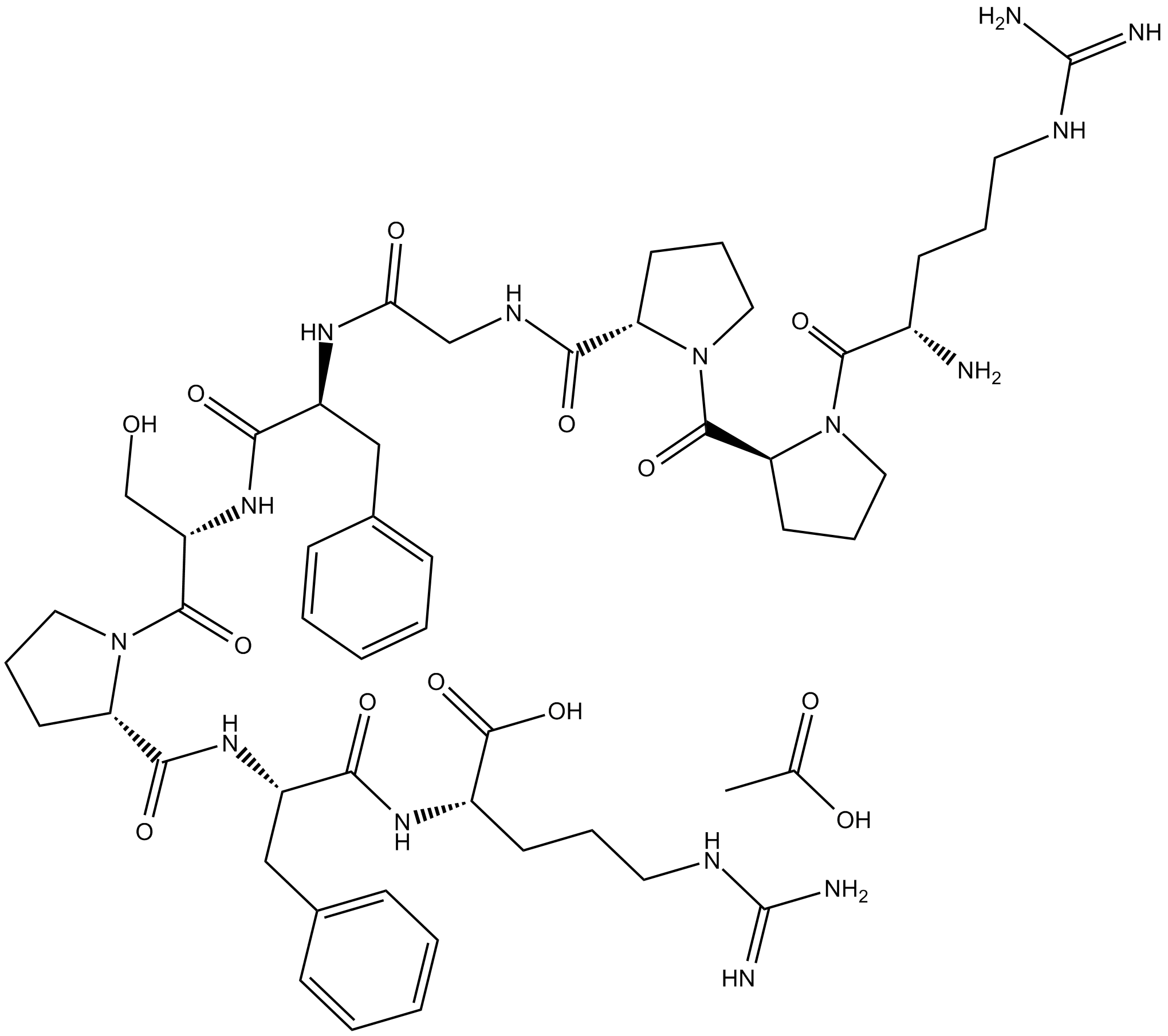Bradykinin (acetate) (Synonyms: H 1970) |
| Catalog No.GC13506 |
inflammatory mediator
Products are for research use only. Not for human use. We do not sell to patients.

Cas No.: 6846/3/3
Sample solution is provided at 25 µL, 10mM.
Bradykinin (acetate) is a well-known 9-amino acid endogenous vasoactive peptide and a systemic vasodilator [1].
Bradykinin is a potent endothelium-dependent vasodilator, leading to the reduction in blood pressure. It also induces contraction of non-vascular smooth muscle in the bronchus and gut, increases vascular permeability and is also involved in the mechanism of pain. Bradykinin is an inflammatory mediator. The Bradykinin B1 receptor is expressed only as a result of tissue injury and plays a role in inflammation. The Bradykinin B2 receptor is constitutively expressed and participates in bradykinin's vasodilatory role.
In cultured endothelial cells, bradykinin promoted a rapid dissociation of the eNOS:B2 receptor complex [2]. In the mouse gastrointestinal tract and pancreas, bradykinin stimulated extravasation from postcapillary venules by two- to sevenfold by interacting with B2 receptors and stimulating tachykinin release from sensory nerves [3].
In healthy men, bradykinin (100-3200 ng/kg min) dose-related increased plasma concentrations of 6-oxo-PGF1a , the stable hydrolysis product of prostacyclin (PGI2). So bradykinin may have a use as a probe of PG12 production in vivo in pathological states [1].
References:
[1]. Barrow SE, Dollery CT, Heavey DJ, et al. Effect of vasoactive peptides on prostacyclin synthesis in man. Br J Pharmacol. 1986 Jan;87(1):243-7.
[2]. Ju H, Venema VJ, Marrero MB, et al. Inhibitory interactions of the bradykinin B2 receptor with endothelial nitric-oxide synthase. J Biol Chem. 1998 Sep 11;273(37):24025-9.
[3]. Figini M, Emanueli C, Grady EF, et al. Substance P and bradykinin stimulate plasma extravasation in the mouse gastrointestinal tract and pancreas. Am J Physiol. 1997 Apr;272(4 Pt 1):G785-93.
Average Rating: 5 (Based on Reviews and 11 reference(s) in Google Scholar.)
GLPBIO products are for RESEARCH USE ONLY. Please make sure your review or question is research based.
Required fields are marked with *




















